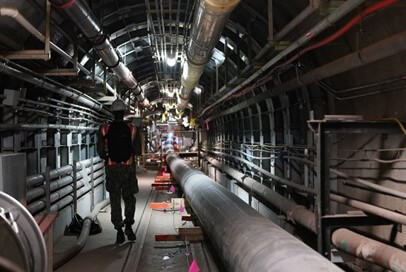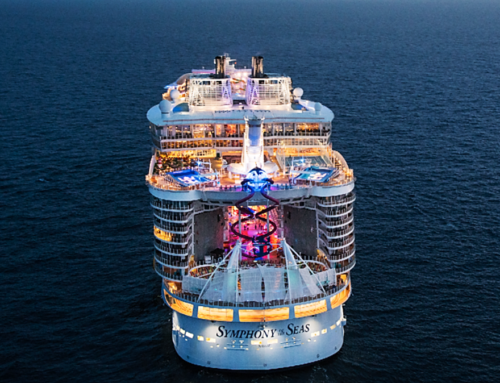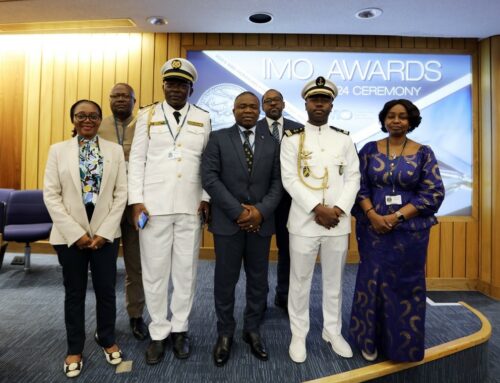Fueling Controversy: The Red Hill Leaks and Hawaii’s Environmental Struggle
 The Red Hill Bulk Fuel Storage Facility, constructed in the 1940s on Joint Base Pearl Harbor-Hickham in Oahu, Hawaii, has become a focal point of environmental and public health concerns due to repeated fuel leaks over the decades. Exploring the history and timeline of these incidents sheds light on a persistent issue that has plagued the island’s environment and its communities.
The Red Hill Bulk Fuel Storage Facility, constructed in the 1940s on Joint Base Pearl Harbor-Hickham in Oahu, Hawaii, has become a focal point of environmental and public health concerns due to repeated fuel leaks over the decades. Exploring the history and timeline of these incidents sheds light on a persistent issue that has plagued the island’s environment and its communities.
1940s: Birth of a Giant
The Red Hill Bulk Fuel Storage Facility was built between 1940 and 1943, during the height of World War II. This colossal facility, consisting of 20 massive underground storage tanks, was designed to hold up to 250 million gallons of fuel. Its strategic importance was undeniable, providing a secure fuel reserve for the U.S. Navy’s Pacific Fleet.
1990s: The First Signs of Trouble
The first major incident of concern occurred in 1998 when over 27,000 gallons of jet fuel leaked from one of the tanks. This incident raised red flags about the facility’s aging infrastructure and its potential risks. Despite the Navy’s efforts to address the leak, the problem persisted, signaling deeper issues with the facility’s integrity.
2014: A Wake-Up Call
In January 2014, another significant leak occurred, this time involving approximately 27,000 gallons of fuel. The incident triggered widespread alarm and brought intense scrutiny from both local communities and environmental groups. The Honolulu Board of Water Supply (BWS) and the Sierra Club of Hawaii voiced their concerns about the potential contamination of the island’s precious groundwater resources.
2015: Consent Order and Stricter Regulations
Responding to the growing concerns, the U.S. Environmental Protection Agency (EPA) and the Hawaii Department of Health (DOH) issued a Consent Order in September 2015. This legally binding agreement required the Navy to investigate the extent of contamination, improve leak detection systems, and develop a long-term plan to ensure the facility’s safety.
2017-2018: Continued Challenges
Despite these measures, the leaks did not cease. In 2017, the Navy reported another leak, although smaller in scale. Environmental advocates and local authorities continued to push for more rigorous action, emphasizing the facility’s threat to Oahu’s drinking water supply. In 2018, the BWS released a report highlighting the potential catastrophic consequences of a major fuel leak.
2019: Calls for Closure
By 2019, public pressure had intensified, with numerous community groups and local leaders calling for the decommissioning of the Red Hill facility. They argued that the aging infrastructure and repeated leaks posed an unacceptable risk to the island’s environment and residents.
2021: Legislative Action
In May 2021, more than 93,000 people living in military housing on and around Pearl Harbor were affected by a massive spill of 20,000 gallons of fuel at the Red Hill facility, which eventually led to the dumping of another 5,000 gallons of fuel in November later that year. The fuel seeped into one of three wells used by the Navy in its water distribution system for thousands of households on and near the joint base.
 The incidents forced thousands from their homes and forced those who opted to remain to use bottled water for months.
The incidents forced thousands from their homes and forced those who opted to remain to use bottled water for months.
In response to mounting concerns, Hawaii’s state legislature passed a bill in 2021 aimed at increasing transparency and oversight of the Red Hill facility. The legislation required the Navy to conduct regular public meetings and report on the progress of leak prevention and remediation efforts.
2022: A New Chapter
Surveys conducted by the Centers for Disease Control and Prevention in January and February 2022 and again in September 2022 found that military personnel, their families and civilians living and/or working on base suffered headaches, behavioral and neurological changes, skin irritation and rashes, diarrhea, fatigue and dizziness to be linked to the contaminated drinking water on base.
Despite repair and cleanup efforts, the Red Hill facility continued to face challenges. In early 2022, another fuel leak was reported, raising alarms once again.
Facing pressure from the Hawaii delegation in Congress, environmental advocates and the State of Hawaii, Defense Secretary Lloyd Austin announced in March 2022 that the Navy would close the massive Red Hill facility, which at the time contained more than 12.4 million gallons of diesel and 93 million gallons of jet fuel.
2023-2024: Federal Trial
Two years after the 2021 spill, a federal lawsuit was filed seeking $7 million on behalf 17 plaintiffs in compensation for illnesses caused by the contaminated drinking water. In total, about 7,500 individuals have joined several federal lawsuits claiming medical, emotional and financial injury from the fuel contamination.
These “bellwether” or “test sample” plaintiffs were heard last month during a two-week trial in Hawaii federal court by U.S. District Court Judge Leslie Kobayashi without a jury. The plaintiffs’ attorneys filed a post-trial brief June 6 and may file a rebuttal brief before July 12.
Most recently, independent news outlet Stars and Stripes reported that defense attorneys for the US government are urging the Judge Kobayashi to significantly reduce the $7 million compensation sought by the plaintiffs. In the recent post-trial defense brief, Justice Department attorneys acknowledged that the spill did cause harm to the plaintiffs, but contended that many of the physical and psychological injuries claimed were not directly related to the spill. District Court Judge Leslie Kobayashi is expected to issue a decision on the issue in the following weeks.
The history of the Red Hill fuel leaks is a cautionary tale of the challenges associated with aging infrastructure and the critical importance of environmental stewardship. Red Hill serves as a reminder of the delicate balance between national security and environmental protection.
We here at the Herd Law Firm, PLLC, support every man, woman, and child (including civilians) exposed to toxic contaminations like these, and believe you deserve quality and attentive legal representation. We are a Northwest Houston-based law firm, and are proud to be able to aid our veterans and their families in seeking restitution for their injuries at Camp Lejeune. We are honored to be a part of the BMBF law group entrusted by the VFW to handle these claims on behalf of veterans and their families who were stationed at Camp Lejeune. Contact us at the Herd Law Firm at 713-955-3699 or at Charles.Herd@herdlawfirm.com. We would be pleased to speak with you about the full spectrum of options you have, and help you make an informed choice.
Image Credit: HawaiiPublicRadio.org, Cory Lum/Honolulu Civil Beat 2022
6/28/2024










